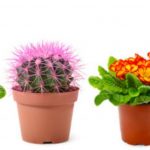Agriculture has always been the backbone of India. Horticulture has gained a lot of visibility in the recent past. More and more people are becoming aware of the global climate change, while some are not quite bothered about the crisis, some do take it as a serious threat that it is and act on it. Horticulture has innumerous benefits on both nature and the person.
So, what is horticulture basically? Horticulture is the farming of plants mainly in gardening format; plants can be simple fruits, vegetables, and even ornamental ones. Over 70% of India is into agriculture, and let’s face it, all the best produces are getting exported. So if you come to think about it, you can actually grow some fruits and vegetables at the comfort of your house terrace and benefit from your organic produces. Gardening has a number of health benefits too. If you are wondering how to go about it, fret no more. We have got you covered on basics of horticulture farming and managing of crops:
-
Prep the soil:
Horticulture or a massive crop plantation, first things first, you need to prep the soil. Make sure there are no lumps in the soil, so tilt it as required. The idea is to get water permeate at ease and roots find their ground easily and breathe comfortably. Also, tilting the soil will make sure the nutrients in the soil are properly mixed and makes it more fertile.
-
Sow seeds:
You can either go for the traditional method of sowing seeds or simply plant a stem of a plant. Look for plants or seeds that are grown in organic lands. This is particularly for people who want to use their produces in their kitchen. So seed selection or stem is as important as any other step in farming.
-
Add manures or fertilizers:
Even if you are dealing with farming on a small scale, adding manure is highly necessary. This makes the soil healthy and fertile, conducive for the plants to grow healthily. The only question is what kind of manure or fertilizer you would like to add. Manure is basically food and the animal waste being decomposed manually in pits to make them manure for plants. Manure is more natural and organic while fertilizers are downright chemicals.
-
Water religiously:
Any plant requires water and sunlight to survive. Watering the plants should be done everyday religiously. Larger plantation requires a special irrigation system to get the job done. Based on your farming size you can choose which watering system works the best for you.
-
Weed:
No matter what your farm size is, weeds are uninvited and inevitable part of farming. Weeding is absolutely necessary to keep your plants healthy, or they will absorb all the minerals in the soil, make it a lot less fertile, and inhibit your plants’ growth. So, weed regularly to enhance growth and produce.
-
Harvest (if any):
If you have planted any fruits or vegetables, you will have to harvest your produce from time to time. Storing them or not is based on the size of your produce. Farm to table is as real as it can get at this point in time. Be sure to share your produce with friends and neighbors. Harvesting does not apply to ornamental plants as you know it.





